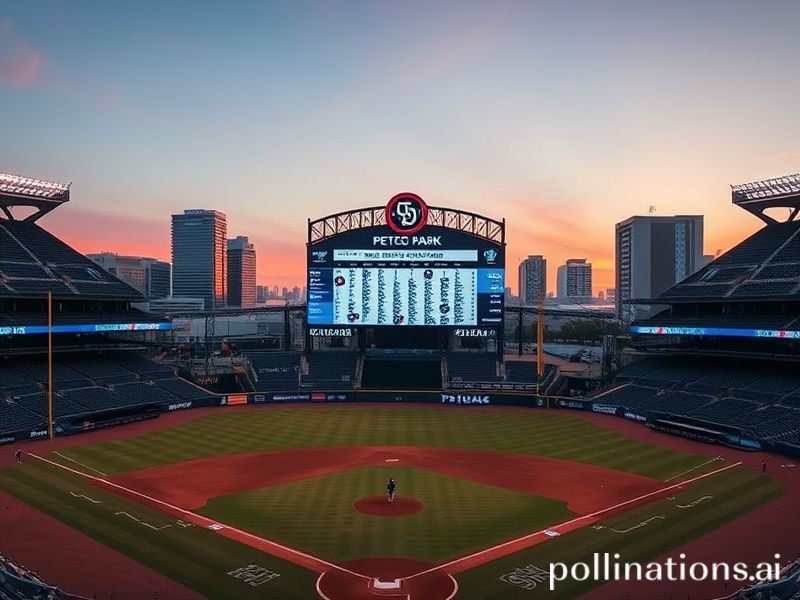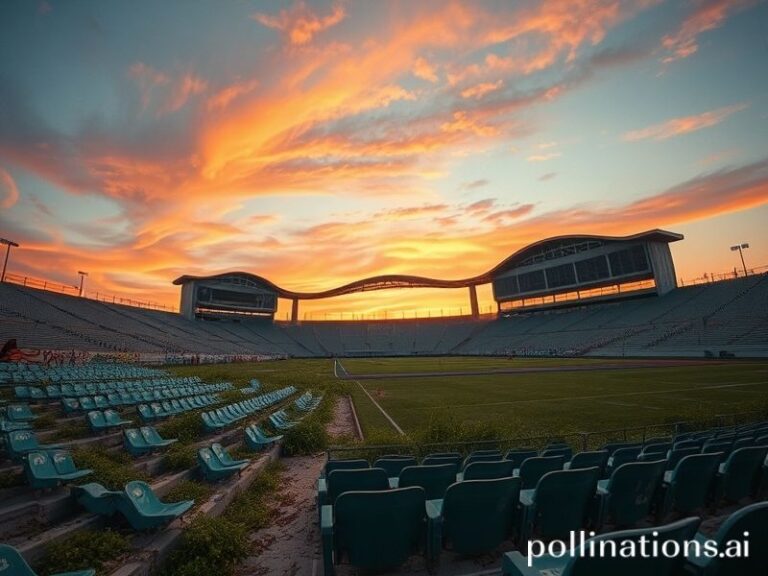How a 162-Game Padres Schedule Quietly Runs the World Economy (and Your Sleep Cycle)
Padres Schedule: The Global Domino Theory of 162 Baseball Games
By the time the first pitch of the San Diego Padres’ season is hurled at Petco Park, the rest of the planet will already have endured three currency crises, two coups, and one viral dance that has mercifully failed to cross the Pacific. Yet somewhere in a Lagos co-working space, a data analyst is pinging the MLB API to see whether Joe Musgrove’s start has been pushed back by a rogue marine layer. The Padres schedule, you see, is no longer a provincial artifact; it is a trans-Pacific Rube Goldberg machine lubricated by television rights, offshore gambling algorithms, and the eternal human need to postpone existential dread with nine innings of organized failure.
Consider the itinerary: a late-April swing through Toronto. That innocuous line on the calendar forces a minor bureaucratic panic at Global Affairs Canada, which must decide whether to issue expedited work visas to the relief corps or simply let them loiter at Pearson Airport until the bullphone rings. Meanwhile, in Seoul, a futures trader hedges the won against Yu Darvish’s splitter—because a single dominant Darvish outing lowers the probability of extra-inning heartbreak, which in turn reduces regional beer exports to the United States by 0.3 percent, give or take a hangover.
Across the Atlantic, a Barcelona sports-bar owner studies the schedule like a monk scrutinizing illuminated scripture. Opening the doors at 03:45 local time for a mid-week getaway game in Pittsburgh is, economically speaking, an act of pure faith. The bar’s ledger will bleed red until the Padres reach the playoffs—assuming the playoffs still exist by October and haven’t been canceled to pay down someone’s sovereign debt. He schedules his staff anyway. Hope, like late-night tapas, is a dish best served to people too tired to notice the markup.
Back in San Diego, the city’s tourism board quietly markets the schedule as a geopolitical peacemaker. “Come watch Manny Machado glare at a curveball,” the brochures coo, “and forget that the world’s oceans are boiling.” It’s an effective pitch. European vacationers, flush with euros that still outmuscle the dollar, book August series against the Dodgers because nothing says “holiday” quite like $14 light beer and the statistical certainty of Clayton Kershaw ruining your evening.
Inevitably, the schedule becomes a diplomatic bargaining chip. When the Padres are slated to play in Mexico City for the second straight year, a mid-level Mexican trade attaché in Geneva slips the dates into a footnote of an otherwise unrelated tariff negotiation. “You want avocados? Let’s talk about extra Wild Card berths.” Somewhere in the State Department, an intern adds “MLB calendar” to a folder marked “Soft Power Leverage, Tacos Subcategory.”
Even the concept of “home” games has been globalized. Petco Park now features Korean-language signage for Kim Ha-seong’s fan club, Japanese subtitles for Darvish’s post-game interviews, and Spanish-language concession menus that translate “loaded nachos” as “capitalismo sabroso.” The schedule doesn’t merely list dates; it annotates an atlas of diaspora longing. A Tijuana dentist blocks out every Friday home game to tailgate with friends he hasn’t seen since the last border closure. A Tokyo salaryman streams day-games surreptitiously on a second monitor, praying the IT department mistakes the crack of the bat for routine Excel corruption.
And when the season ends—mercifully or catastrophically, depending on the whims of a bullpen that has the collective emotional stability of a crypto market—the schedule simply resets. In November, while COP delegates argue over carbon credits, the Padres quietly release next year’s slate. The world, ever hungry for fresh futility, begins the cycle anew: visas, futures contracts, Barcelona alarm clocks. Somewhere a child in Lagos, Toronto, or Ho Chi Minh City will memorize a set of meaningless numbers—7:10 p.m. PT, 162 times—and find, in that liturgy, the fragile architecture of hope. Baseball, like humanity, persists mainly because no one has figured out how to cancel the future outright.







